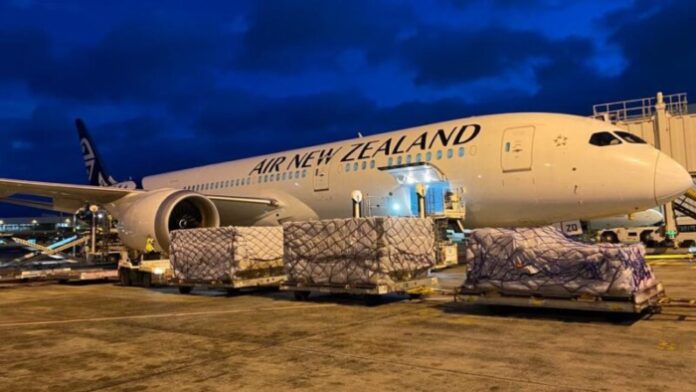
-
Global demand for air cargo service fell 13.7% in November 22 with international operations seeing a 14.2% decline
-
Capacity shrank 1.9% in November 2022, the second year-on-year contraction since April 2022 after the decline in October. International cargo capacity eased 0.1% y-o-y
-
Compared with November 2019 pre-COVID-19 levels, there was a smaller 10.1% y-o-y contraction in overall demand while capacity was down 8.8%.
Asia Pacific airlines were the worst-hit as demand softened in world air cargo markets in November 2022, a second month of year-on-year contraction, but the International Air Transport Association (IATA) said the industry showed resilience amid economic headwinds.
The Geneva-based grouping of 300 airlines globally in a statement said Asia-Pacific airlines saw their air cargo volumes drop 18.6% y-o-y in November 2022, the worst performance of all regions and a 14.7% decline from October’s performance.
IATA said airlines in the region continued to reel from lower levels of trade and manufacturing activity and supply chains disruptions due to China’s rising COVID cases. Available capacity in the region decreased 4.5% y-o-y.
The association said global demand measured in cargo ton-kilometers (CTK) fell 13.7% y-o-y in November, the traditional peak season, but was relatively stable compared with October.
Capacity, measured in available cargo ton-kilometers (ACTK), fell 1.9% y-o-y, also a second year-on-year decrease since April 2022 following the fall in October, IATA said. International cargo capacity eased 0.1% y-o-y.
Compared with levels November 2019, the contraction in overall demand was 10.1% while capacity was down 8.8%.
Willie Walsh, IATA’s director general, said the air cargo industry was resilient in the face of economic uncertainties, as demonstrated by demand being relatively stable month on month.
“Market signals are mixed. November presented several indicators with upside potential: oil prices stabilized, inflation slowed and there was a slight expansion in goods traded globally. But shrinking export orders globally and China’s rising COVID cases are cause for careful monitoring,” Walsh said.
The group noted several factors in the operating environment in November 2022, primarily global new export orders, a leading indicator of cargo demand, which were stable compared to October 2022. While new export orders were declining in major economies, they were growing in Germany, the United States, and South Korea.
Global goods trade grew 3.3% in October. IATA said that given the softening in air cargo demand, this suggests that maritime cargo was the primary beneficiary.
The association also noted the US dollar’s sharp appreciation, which added cost pressure as many costs are in US dollars, including jet fuel, which is already at high levels.
High fuel prices triggered Western sanctions on Russian petroleum exports following Moscow’s invasion of Ukraine drove inflation to historic highs as businesses, industries and households had to spend more on energy. But signs of hope are emerging as the most affected economies, especially the European Union, are finding new sources of energy.
The Consumer Price Index for Group of 7 countries in November 2022 decreased from 7.8% in October to 7.4% in November, the largest month-on-month decline in 2022. Inflation in producer (input) prices dropped to 12.7% in November, its lowest level so far in 2022.
November 2022 performance in other regions:
- North American carriers posted a 6.6% y-o-y drop in cargo volumes in November 2022, but an improvement in performance compared with October’s 8.6% decline. Capacity increased 0.3% compared with November 2021.
- European carriers’ cargo volumes fell 16.5% from the November 2021 level. But this was an improvement from October’s 18.8% slide, thanks to stronger new export orders in Germany. Airlines in Europe continue to hit most by the war in Ukraine. High inflation, most notably in Türkiye, also hurt volumes. Capacity fell 6.6% y-oy in November 2022.
- Middle Eastern carriers saw cargo volumes contract 14.7% y-o-y but it was a marginal rebound from October’s 15.0% fall. Cargo volumes to/from Europe dove 16.3% y-o-y, impacting the region’s performance. Capacity grew 2.1% y-o-y.
- Latin American carriers reported a 2.8% y-o-y increase in cargo volumes in November 2022, t the strongest performance of all regions and a significant rebound from the 1.4% decline in October. Capacity was up 2.8% y-o-y.
- African airlines’ cargo volumes fell 6.3% y-o-y, an improvement from the previous month’s 8.3% decline. Capacity contracted 11.4% y-o-y.
RELATED READ: Air cargo volumes hit by Ukraine conflict, Omicron: IATA




